When Dr. Jerry Bass acquired a stake in the Los Angeles Lakers for $67.5 million — including a 13,000-acre ranch in the Sierra Nevada — there was little indication that the team’s image would be as global as it is in the decades thereafter.
As news came out a few days ago, the late Bass daughter Jenny is leading a record $10 billion Lakers sale deal to sell it to well-known financier Mark Walter, who found herself once again setting new standards for basketball on and off the basketball court.
As The Athletic reporter Mike Vorkunov pointed out, although Walter will eventually take over the team's operations, Bass is expected to continue to manage the team "after the deal is completed for quite some time." Even after the deal is completed, the Bass family will retain 18% of the team's shares, and Bass will still serve as the team's boss representative.
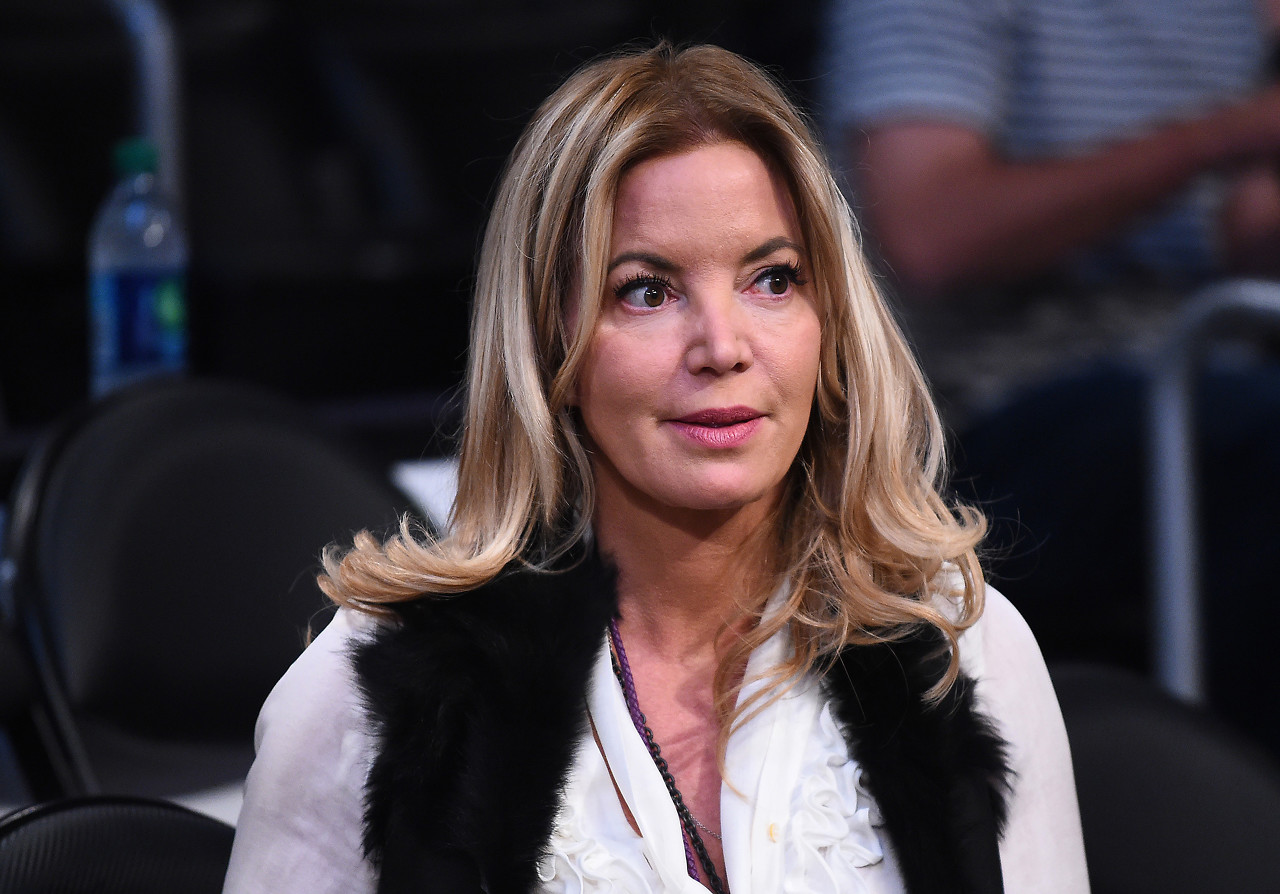
Nevertheless, the sale marks a huge turnaround in the league, as the most prestigious team in the league will be improved in resources. And before that, it had achieved unparalleled success under the leadership of the Bass family.
In the 46 years since the acquisition, the Lakers' brilliant peaks and gloomy troughs have participated in reshaping a relatively immature league, and then Bass's idea of "Showtime" basketball has injected new vitality into the NBA. Under the leadership of the Bass family, the team's success was specifically reflected in 11 championship trophys, 17 NBA Finals appearances, the tradition of introducing Hall of Famers, and those good, bad, and fragile milestones, which have left an indelible mark in league history.
Let's review the timelines of some of the Lakers' most important moments under the Bass family:
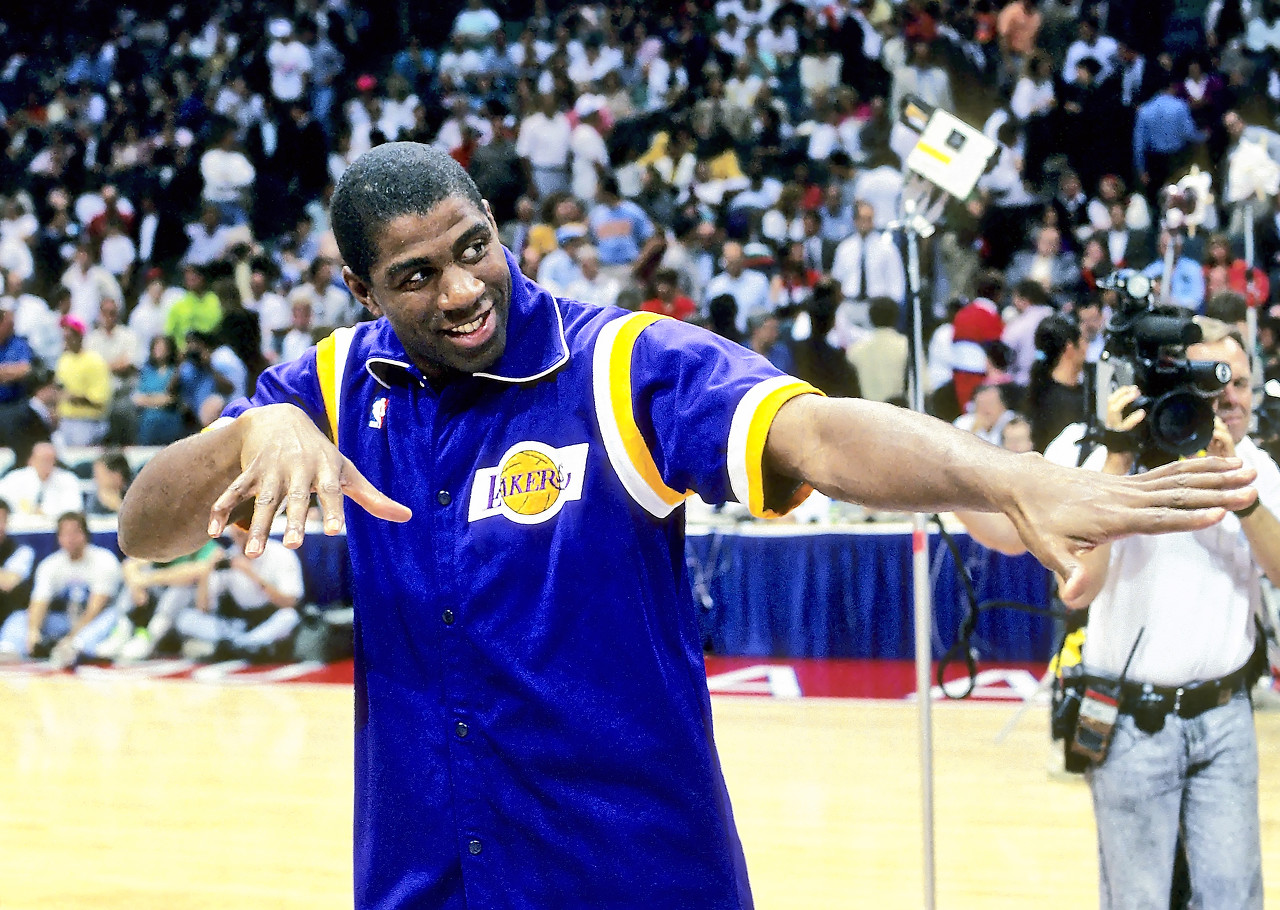
Showtime Era
Although Jerry Bass has paid a huge sum of money for the Lakers, his acquisition is almost worthless without the right star power to achieve his vision. Kareem Abdul-Jabbar was already on the team at that time, but for the most successful championship cycle after the merger of the ABA and the NBA, the "Magic" Elvin Johnson selected in 1979 was the ultimate cornerstone of the team building.
Johnson's immediate rewards are still unmatched. How many 20-year-olds average 18 points, 7.7 rebounds, 7.3 assists and 2.4 steals when entering the league? It is worth mentioning that this is arguably the greatest point guard in history and is actually playing positions he is unfamiliar with during his rookie season. This may not surprise you, because in Game 6 of the 1980 NBA Finals, he replaced the injured Jabbar as center, locked the championship with his "Little Sky Hook" and became (and still remains) the youngest FMVP.
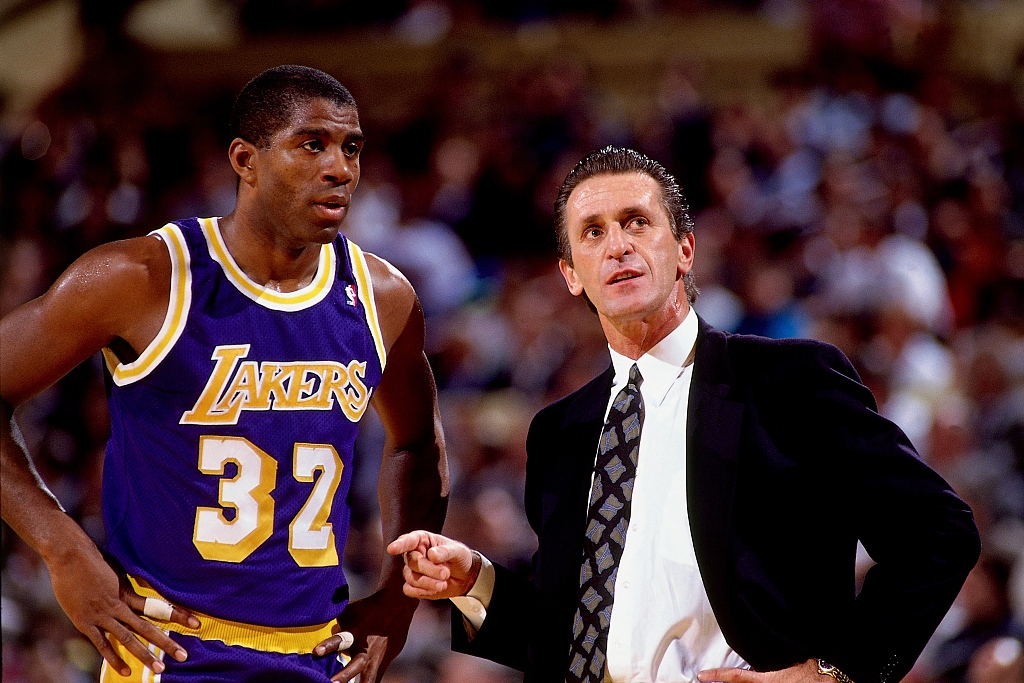
Despite the great success of the Lakers with their new roster and ambitious bosses, change is still necessary. After six games started in the 1981-82 season, Johnson expressed dissatisfaction with then-head coach Paul Westhead, paving the way for 36-year-old Pat Riley to take over as head coach. Buss initially wanted Lakers legend Jerry West to take the head coaching position, but his refusal opened a path for Riley to lead Showtime basketball.
Under Riley's leadership, the Lakers achieved a record of 50 wins and 21 losses, and eventually won the 1982 championship, and found a new team-building style.
In Riley's more than eight seasons as the Lakers' head coach, including the playoffs, they led the league in terms of winning percentage (72.5%), total wins (635), playoff wins (102), NBA Finals appearances (7 times) and championships (4), including four consecutive seasons of 60 wins.
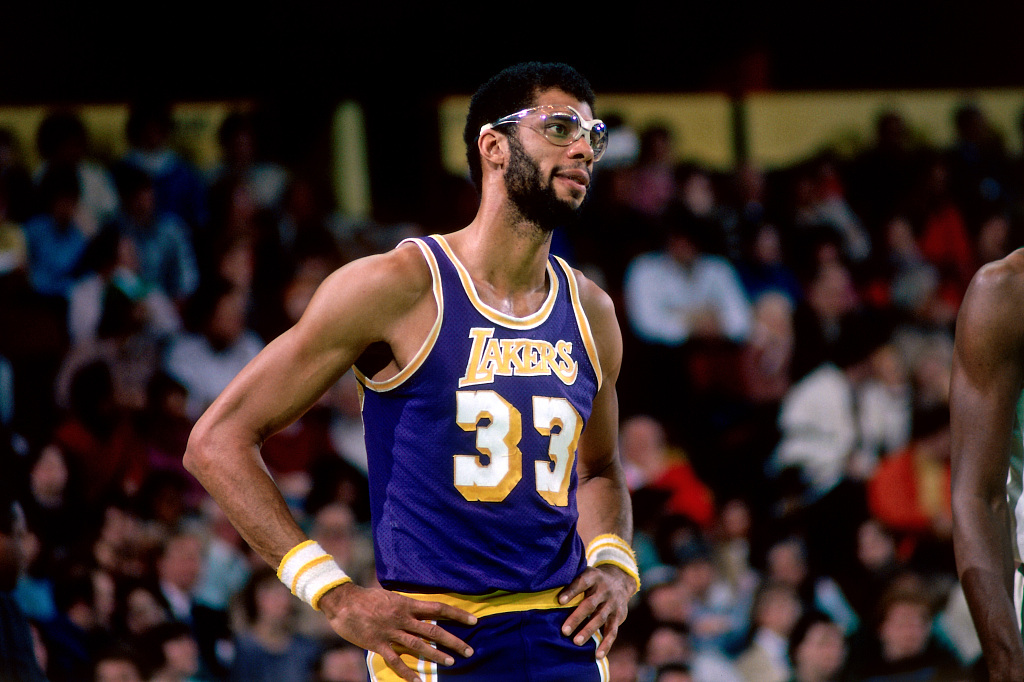
Johnson, Jabbar and Worthy were all elected to FMVP on their different championship journeys, thanks to a high-energy offensive system that centers on gorgeous passes and valuable conversion scores, and an unparalleled star lineup led by actor Jack Nicholson on the sidelines.
Despite its great success, the Lakers eventually need to be updated. Jabbar retired in June 1989, and just a few days ago, the Lakers lost to the upstart Detroit Pistons in the finals. It was the first of a few domino pieces that the Lakers fell, and Riley chose to part ways with the team when he felt he had done enough in Los Angeles. On June 12, 1990, despite being elected coach of the year for the 1989-90 season, Riley resigned as head coach of the Lakers with two years left in his contract.
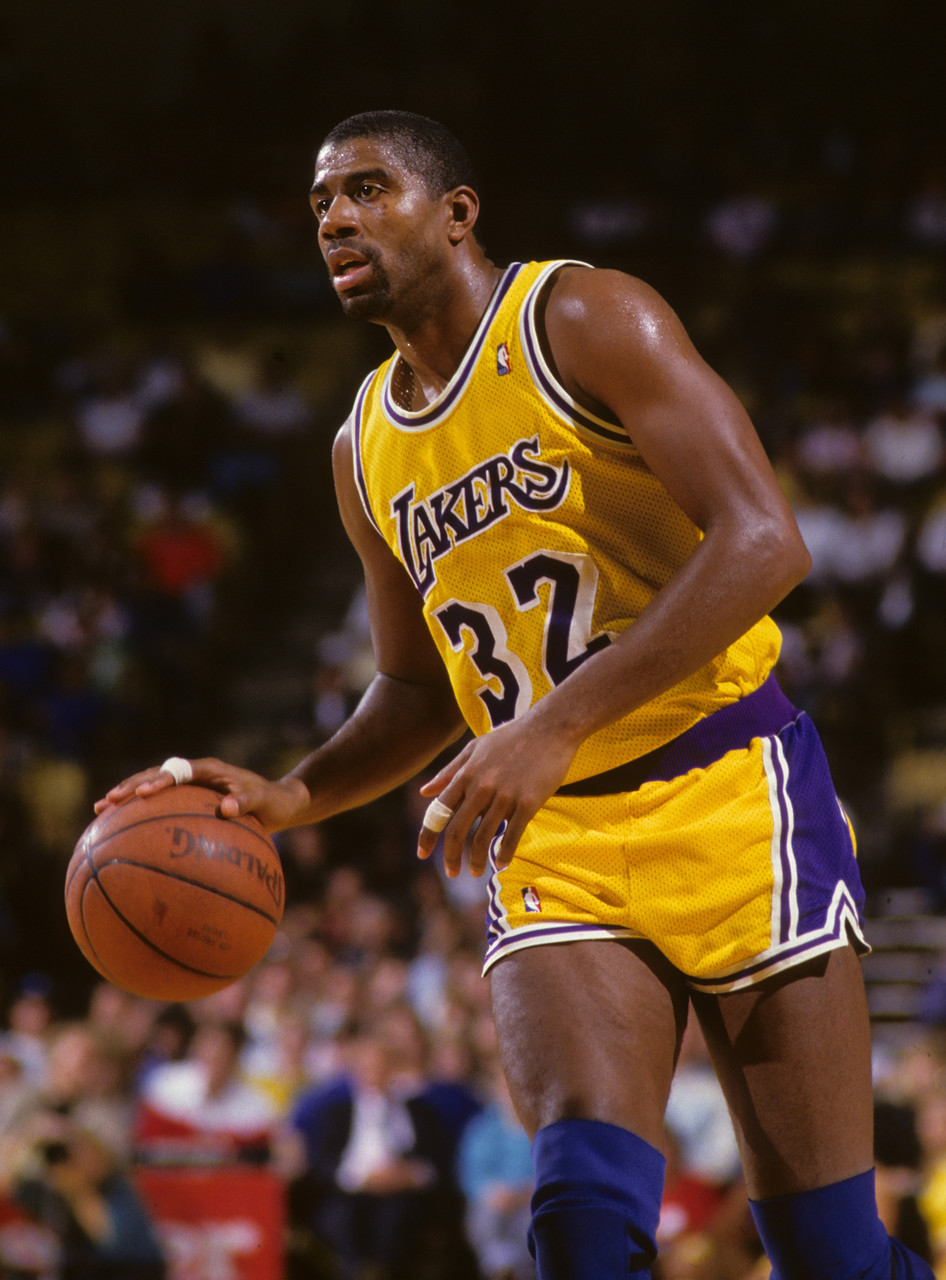
Post Showtime era
Johnson still stayed in the team as the team's facade, although it was not long.
In the 1990-91 season, he ranked second in the MVP vote, was selected for the last NBA All-Team Team in his brilliant career, and led the Lakers to the NBA Finals. Afterwards, a life-changing announcement shocked the sports world.
Just a few months after the young Michael Jordan stomped on the Lakers to taste the glory of the championship, Johnson found himself infected with HIV during a physical examination before the 1991-92 season, which led to his announcement of his immediate retirement from the NBA. Bass and the Lakers firmly supported him, and he became a representative figure in the fight against the disease.
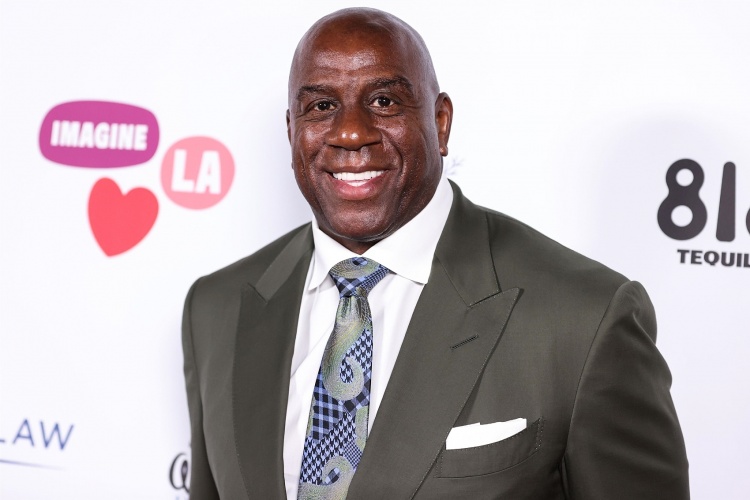
At that time, the whole world was not very familiar with the impact of HIV. Johnson faces many questions, such as whether to participate in the 1992 NBA All-Star Game and his sexual orientation, while also facing the biggest challenges of his personal and professional life.. Johnson, who is in good health and has become an important figure in HIV/AIDS education, returned to the court at the end of the 1995-96 season to show the world that he still has control over a basketball game.
During his absence, the Lakers struggled to get back to their form close to their championship period. A series of first-round playoffs and missing the playoffs brought Bass back to the starting point of his plan. He and West, then general manager, began to find a new championship formula.
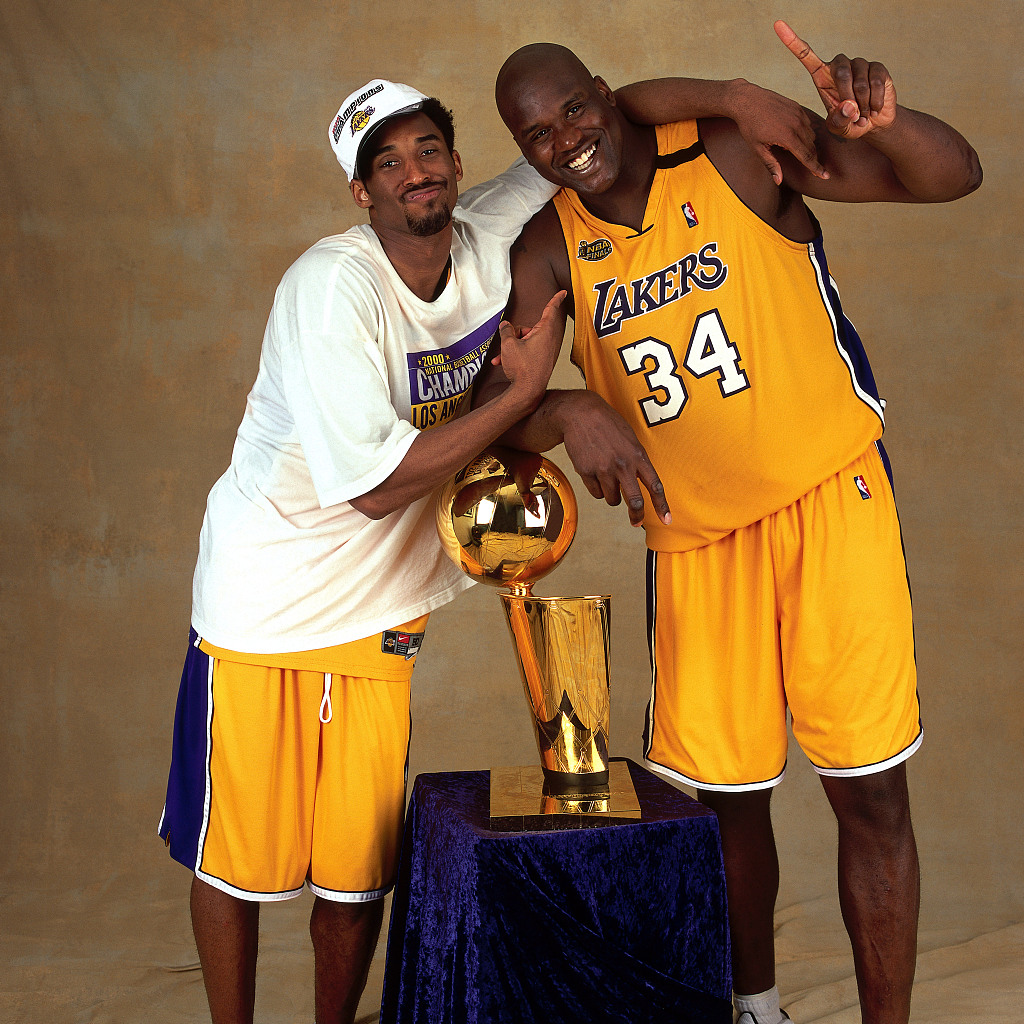
Shaq and Kobe arrived in Hollywood
The summer of 1996 can be said to be the most influential summer in NBA history. The league itself also benefited a lot from the talented people at the draft that year. The real gem is Kobe Bryant, who was only 17 years old, who was selected by the Charlotte Hornets at the 13th pick before West got the potential star through a trade (a tribute to Vlad Divac!).
On July 19, 1996, the Lakers signed a seven-year, $120 million contract with Shaquille O'Neal to build arguably the most powerful duo in NBA history, although it took them some time to gain a foothold. In his first season with O'Neal and Kobe, O'Neal played only 51 games, but ranked ninth in the MVP vote. The Lakers, led by head coach Del Harris, achieved a record of 56 wins and 26 losses in the regular season. That season was the team's most successful season since the 1990-91 season, but the ending was embarrassing. Rookie Kobe scored four shots and three notes in the fourth game of the semi-final against the Utah Jazz, and the Lakers lost that round of the series 2-3.
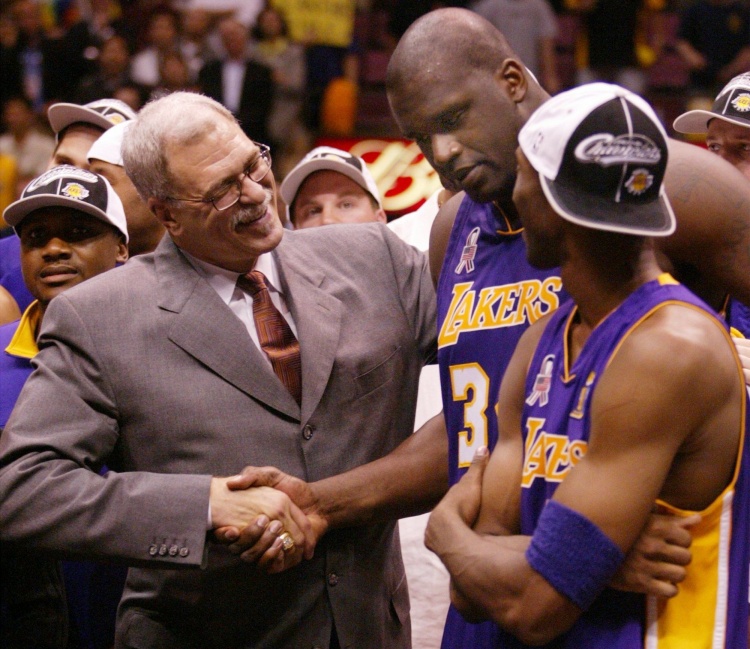
Bass has always been committed to rebuilding the championship basketball in Los Angeles. The Lakers experienced several premature playoff eliminations before hiring Phil Jackson, who had helped Michael Jordan’s Chicago Bulls win six championships at the time, as head coach. Veterans Brian Shaw, Ron Harper and AC Green (the former Showtime member performed well) helped the Lakers perfect their roster.
By the end of the 1999-2000 season, O'Neal established himself as a MVP, and Kobe began to grow into a regular on the All-Round Team, with the Lakers winning their first championship since 1988. The regular season record of 67 wins and 15 losses is the best single-season record since 69 wins in 1971-72, heralding an early start to a dynasty.
However, at the end of the season, Jackson took over the team's operations and West resigned from his position in management. The Lakers won 11 less games in the 2000-01 season, but their performance in the 2001 playoffs is still the benchmark for basketball dominance. They achieved a record of 15 wins and 1 loss that year and successfully defended their title. The 93.8% winning rate is still the second best record in the playoffs in a single season, second only to the Golden State Warriors in 2017.
By 2002, the three-game winning streak put the Lakers in a unique ranks, and they became the first team to do it since Jordan's Bulls. They are still the last three consecutive teams in the NBA, and this may continue for some time, given the league's new luxury tax penalties.
As those championship years gradually faded away, new challenges also followed: from contract disputes, fights between players and coaches, failed free agent signings, to four consecutive championship attempts that failed to lose to the Pistons in the 2004 Finals. One of the most eye-catching challenges for the Lakers was Kobe's sexual assault case, which stemmed from a 2003 charge in Hawk County, Colorado, where Kobe was arrested on a complaint from a 19-year-old hotel employee. The complaint charged him with a third-degree felony, the second worst sexual assault charge in Colorado. Kobe surrendered himself to the Eagle County Sheriff's Office on July 5 and was released about an hour after paying $25,000 bail. Before the trial, the plaintiff's name was accidentally leaked. After the jury selection was completed, the plaintiff decided not to participate in the trial, resulting in the criminal charges being dismissed. Kobe apologized to the plaintiff and his family, but denied the allegations. After 20 months of legal struggle, the matter was settled out of court as a civil case.
In addition, by the end of the 2003-04 season, it was obvious that the combination of O'Neal and Kobe had come to an end, which led to O'Neal being traded to the Miami Heat, and Jackson resigned from his position as head coach. He later wrote a book revealing the chaotic season of the Lakers, saying that Kobe was "unable to coach." Lakers management objected to Jackson's statement. After O'Neal left the post-Shake era, the Lakers' window period was very fragile. Kobe has his own team, and Jackson returns to the team after leaving the Lakers for a season, and with the help of Lamar Odom and Caron Butler, the Lakers transition to a new era.
Just like in the early 1990s, several first-round exits of the playoffs forced the Lakers to reflect on themselves before taking action.
Everyone remembered Kobe asking for a deal, and Bass was open to it, but he eventually convinced Kobe to stay. At that time, Kobe was playing the best performance of his career (average 35.4 points per game in the 2005-06 season and ranked fourth in the MVP voting and third in the 2006-07 season), but the Lakers' final results are still unremarkable, which is incredible for a team with a player who can score 81 points in a single game or score more than the opponent's entire team in three quarters.
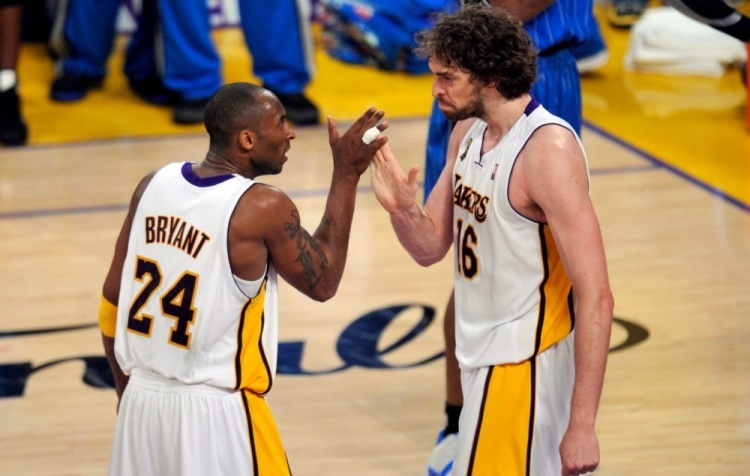
Rebuilding around Kobe
On February 2, 2008, the Lakers obtained All-Star inside Paul Gasol through a trade with the Memphis Grizzlies, and promoted a core lineup that was competing for the top four seats in the West to a team that immediately competed for the championship..
Less than a year after Kobe asked for a deal, he won the MVP for the first time in his career. The Lakers returned to the Finals for the first time in nearly five years, and although they lost to the difficult Celtics again, they opened a window for the championship.
In the next two seasons, Kobe led the Lakers back-to-back to win, put the finishing touch on his championship resume and won the only two FMVPs in his career. Jackson returned to the coaching bench and reopened the Lakers’ championship glory, but the flames quickly began to sway.
On May 10, 2011, just after the Lakers were swept by the Dallas Mavericks in the first round and their dream of three consecutive championships ended, Jackson resigned as the Lakers head coach, paving the way for management to hire Mike Brown as the new coach.
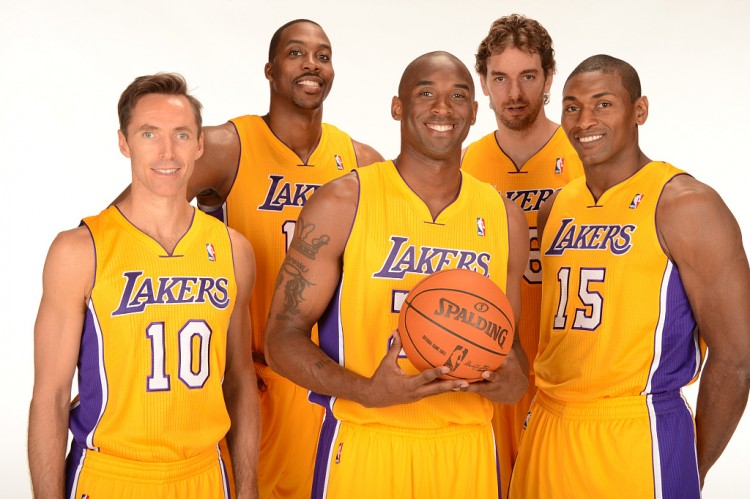
The Lakers remained ambitious in line-up adjustments - introducing Steve Nash and Dwight Howard, and recruiting former Phoenix Suns head coach Mike D'Anthony to coach for a brief time - but that wasn't enough to get them to the top again.
On February 19, 2013, after 18 months of fighting cancer, Jerry Bass passed away at the age of 80, and the Lakers' future path became even more uncertain. A month before his death, the Lakers were valued at $1 billion, making it the second most valuable team in the NBA after the New York Knicks ($1.1 billion). Although Buss' death shocked the team and the league, he was ready to ensure that the Lakers could remain in the family, splitting his 66% controlling stake equally between his 11 children and designating Jenny as the Lakers' boss representative at the league meeting. When Kobe ended his career as a player, he did it in a way that only he knew: in a 50 shots against the Jazz, he scored 60 points, setting an NBA player's scoring record in his last game of his career. He scored 37 points in the first three quarters, but he felt hot in the last quarter, scoring 23 points for 16 shots, while the Jazz only scored 21 points. That moment was exciting, especially after he recovered from a career-changing Achilles tendon rupture that was a rare highlight during that dark period for the Lakers.
"Dark" is relatively speaking for the Lakers, but missing the playoffs for five consecutive seasons is a tough time for any team, especially a team that missed the playoffs only five times in its first 64 years of existence. During that time, the Lakers tried hard to bring more star power to Los Angeles until LeBron James signed in 2018. From 2013 to 2018, the Lakers ranked 28th in the NBA with a winning rate (34.8%), but they played the role of the scouting department and reserved a promising group of players through the draft. Over the past 10 to 15 years, many outstanding rookies have worn Lakers jerseys, including Julius Randall, Brandon Ingram, Lonzo Ball, Jordan Clarkson, Ivica Zubac and Larry Nance Jr.
Although few people would think that these players can change the fate of the team, their growth prospects are enough to help the Lakers rebuild their roster, not only attracting James, but also creating the last window to compete for him under the attention of the Buss family.
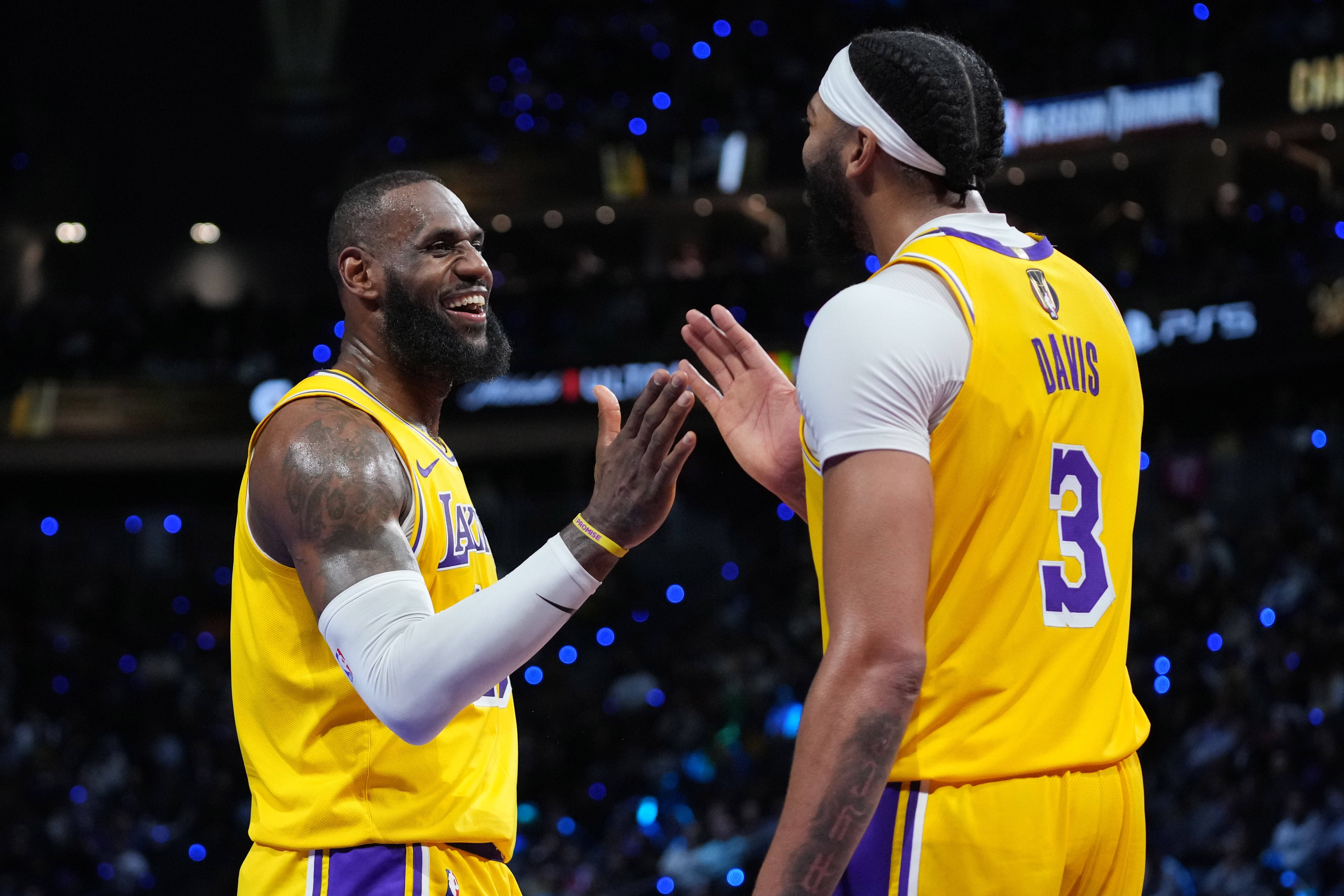
New Star Power
When the Lakers won Anthony Davis on July 7, 2019, the championship hope was immediately reignited, continuing the team's long-standing tradition of chasing the championship. The combination of Davis and James helped the Lakers reestablish their title contender in one of the most challenging seasons ever. On January 26, 2020, James surpassed Kobe in the NBA's all-time total score list and rose to third place. Celebration is short-lived. Kobe died a few hours later in a helicopter crash.
The Lakers used the power of that moment to win their 17th (and most recent) championship in the NBA's COVID-19 quarantine zone in Orlando, Florida. There, James became the first player in NBA history to be elected FMVP on three different teams, and the Lakers have regained their way of winning the championship. With his long-term value as the core of both offense and defense, Davis has engraved his name into the league's history, allowing him to be selected into the NBA's 75 Big Stars along with James, Kobe, Johnson, Jabbar and other legends. The existence of
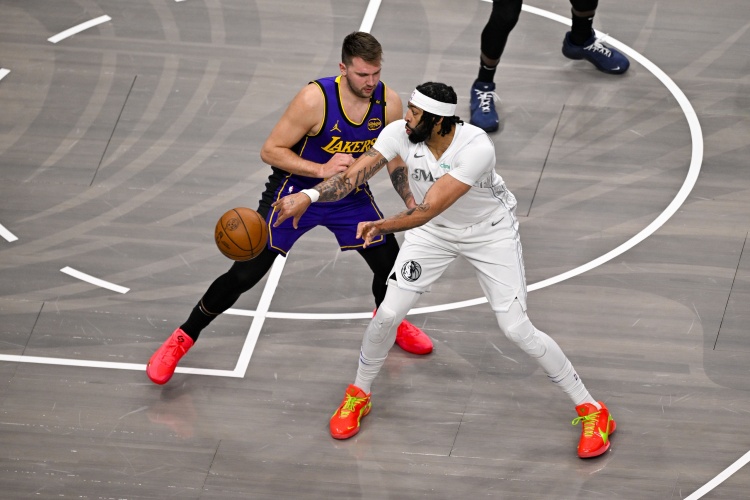
Davis also helped the Lakers grab another player in the trading market that was enough to change the team's fate. The Lakers traded Davis for Luca Doncic on February 3, 2025, which summarized the reason why Bass acquired the team decades ago. No matter how much money a person has, vision is crucial. The bright lights of Hollywood will attract any big-name star, but it's hard to figure out which sports team can better balance entertainment, star power and performance than the Lakers.
And, despite the team itself, it has been a relatively family-style shop until it was sold to Los Angeles Dodgers big boss Mark Walter this week for a record $10 billion.
What will the Lakers look like in the next few years? Doncic will soon need to sign a new contract, JJ Redick is becoming one of the most promising coaches in the league, and James is still unparalleled box office appeal even when he is older. The NBA's upcoming labor agreement will also work, and its newly established financial penalties will ensure that.
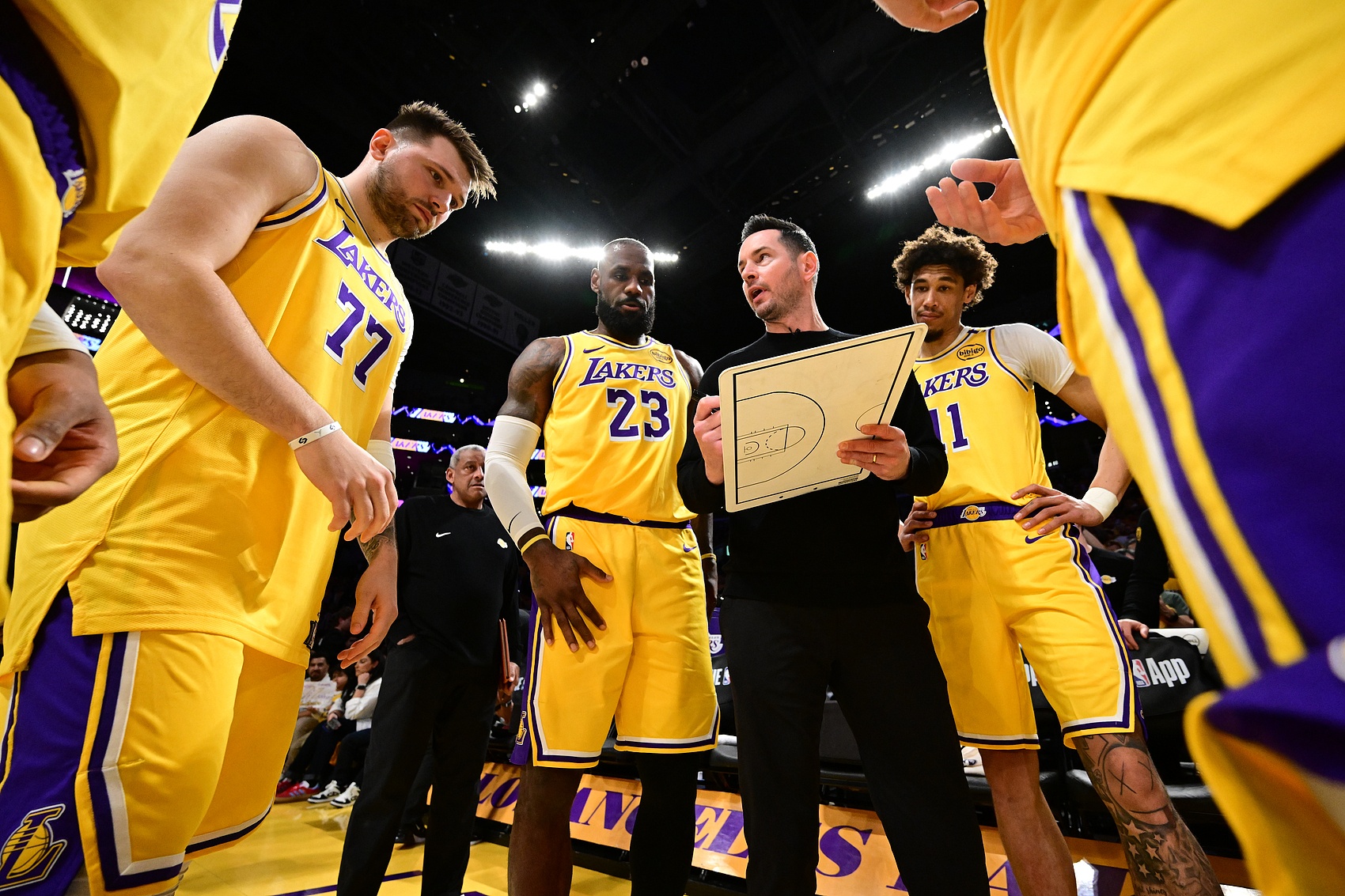
Walter will have to adapt to the salary structure that manages a basketball team. Defending the title has become more difficult due to the limitations of lineup construction. Retaining big-name players for a long time has also become more difficult because they have too many opportunities off the court to broaden their professional horizons.
Despite recent complaints about small markets and boring basketball, it is hard to deny that the NBA has built an unparalleled global presence.
None of this would have happened without the Bass family making the Lakers into top sports giants through one ambitious idea after another.
Author: James Jackson
Translator: GWayNe